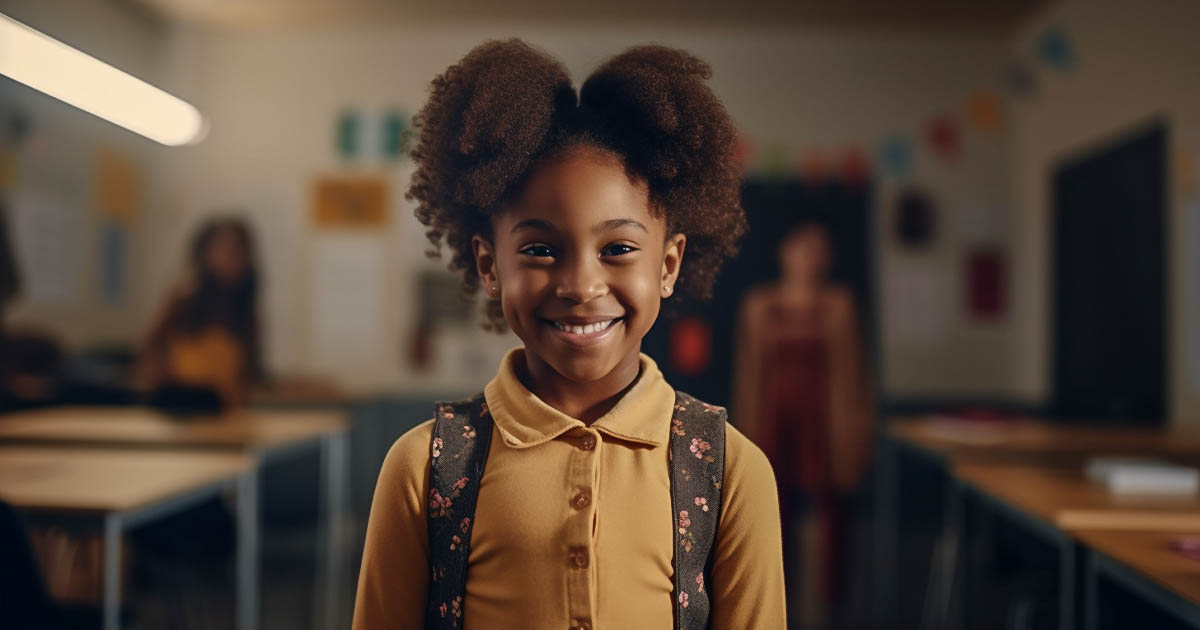
Mar 31, 2023 4:00:00 PM
Ensuring that girls feel safe while learning is a large part of receiving quality education. In addition, girls and young women, like all students, deserve ample opportunities to acquire the knowledge and competency to succeed in the workplace, gain social emotional learning skills necessary to navigate to an evolving world, make decisions about their own lives and contribute to their communities.
In my academic career, I had the privilege of being taught by a majority of women — and women of color. Their discipline, structure and dedication to assert confidence, advocacy, and safety of their students carried outside of their classroom.
I excelled because the women who taught me intentionally established learning environments where female success was accepted, expected, and normalized — not discouraged or dismissed.
This maximized my creativity and motivation, as well as allowed me to actively participate in and accept a world in which girls and women thrived in every field. Educators who saw, heard, and encouraged my progress helped me enter adulthood with the inner expectation to show up as the best version of myself.
It is critical to recognize the remarkable progress made by female students over the last few generations. However, even as educational environments have been improved to offer more opportunities for women, sexism can still be a problem.
Despite Recent Success, Girls Still Face Barriers in School
In the United States, national testing results reveal that girls have closed the gender achievement gap in math by scoring on par with boys and far out-performing boys in language arts. Girls have surpassed boys in college enrollment as well as high school and college graduation rates. Boys — especially minorities and those with disabilities — are also far more likely to be expelled or suspended from school.
Experts pose many possible explanations for these achievement disparities between gender groups, some reasons being boys’ brains develop more slowly than girls, and they are four times more likely to have attention-deficit/hyperactivity disorder (ADHD) or be diagnosed with a disability.
Girls also have the upper hand on measures of self-discipline as opposed to boys, which helps them be more dependable with homework, stay on track with their studies, and function well in a highly routine schooling environment.
Wanted: Targeted Initiatives for Black Girls
Ultimately, every student deserves a quality education. But there are barriers that prevent girls and girls of color from being in the best position possible to obtain it.
Today's girls face a different kind of crisis. Schools struggle to support teen girls' mental health and stop persistent harassment. The findings show a generation of young women who have endured nightmarish levels of depression and sexual violence — and present uncharted territory for the health advocates, teachers, counselors, and parents who are trying to help them. The reasons girls are in crisis are often complex, and tend to vary by race, ethnicity, class and culture.
The notion that all people of color face oppression in the same way is false. Even when the majority of students are non-Black people of color, Black girls continue to have negative school experiences.
Educators face a unique challenge with Black girls that can be addressed through cultural competency training and more comprehensive data collection. But the societal misconception that Black girls require less nurturing and protection than their white counterparts is something frequently promoted in schools.
This fuels policies and protocols that over-discipline and expel Black girls from classrooms across the country. However, most data collected by states does not illustrate a full picture of what justifies these cruel and unusual penalties. There is no doubt that Black boys have been subjected to injustice and exclusionary practices, but Black girls are being pushed out of the classroom for simply being Black girls.
Black girls have always been devalued based on how others perceive them. Unfortunately, this provides precedence that there is a dire need for specifically targeted initiatives and programs that include the unique experiences and stories of Black women and girls to serve as a role model in promoting Black girls’ leadership skills.
Local legislators, school boards, policy members, and stakeholders can work to decriminalize girls in schools by implementing programs and investing in organizations which support gender equality through awareness surrounding sexual harassment, bullying, and gender-based violence.
This can boost inclusion of Black girls and challenge school discipline policies that disproportionately impact Black girls’ graduation rates, absenteeism, and pipeline to prisons.
All girls deserve liberated schooling experiences where they can engage in critical analysis and curious thinking without fear of punishment. They deserve academic affirmations and to build upon their knowledge in order to make a difference in the world.
And this goes double for Black girls.
Photo by Allison Shelley for EDUimages.
Trinity Alicia is an editorial intern at EdPost based in Boston. Having studied journalism, film and Spanish at San Diego State University, Alicia has versatile experience in print, public relations and multimedia that she brings to the EdPost team. In her free time, she enjoys live music and bicoastal traveling.
Few issues in education spark more tension and debate than standardized testing. Are they a tool for equity or a burden on students? A necessary check on school systems or a flawed measure of...
Charter schools are public schools with a purpose. Operating independently from traditional school districts, they're tuition-free, open to all students, and publicly funded—but with more flexibility...
Despite the benefits of a diverse teaching force, prospective teachers of color fall out of our leaky preparation pipeline at every stage: preparation, hiring, induction, and retention. Here’s what...
Ed Post is the flagship website platform of brightbeam, a 501(c3) network of education activists and influencers demanding a better education and a brighter future for every child.
© 2020-2025 brightbeam. All rights reserved.
Leave a Comment